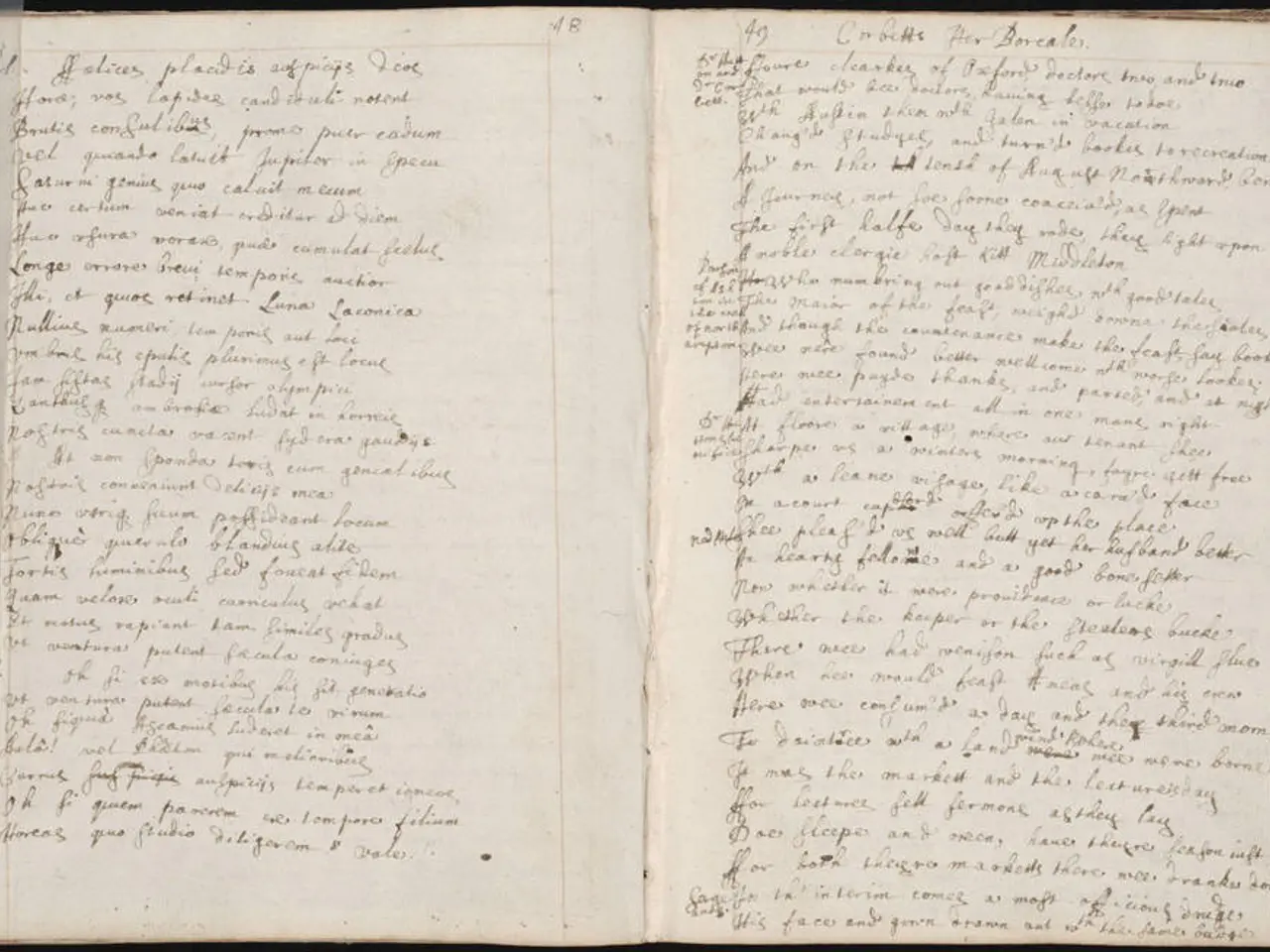Preparing for a Bachelor's Thesis: Insights into Key Factors for Successful Completion
Writing a bachelor thesis can be a daunting task, but with the right approach, it can be a rewarding experience. Here are some tips to help you navigate the process.
Choosing the Right Topic
The choice of topic is crucial for a successful bachelor thesis. It should be interesting, feasible, and relevant to your field of study. A clear, focused topic that is supported by enough available sources is ideal. Avoid too broad subjects and aim for a specific argument instead.
Collaborating with Your Supervisor
Speaking to your responsible supervisor early can provide suitable topic suggestions or help refine your ideas. They can offer valuable insights and guidance throughout the process.
Creating a Schedule
A possible schedule includes defining the topic and creating a rough outline in the first two weeks, followed by intensive literature research in the next four weeks. Writing the thesis should take place in the following five to eight weeks, with a revision or correction phase in the ninth week.
Avoiding Plagiarism
Properly acknowledging every foreign idea is crucial to avoid plagiarism. Always give credit where credit is due.
Writing the Thesis
Effective strategies for writing a successful bachelor thesis include starting with a compelling introduction, providing objective background information, developing the main body with a subjective discussion, and writing a strong conclusion. Break down the assignment prompt carefully to understand expectations, ensure your writing is clear and logically structured, and focus on a topic that you either care about or that sparks controversy to engage your reader better.
Staying Motivated
In demanding study programs, staying flexible and adapting to changes can increase the chances of successfully completing the bachelor thesis. Supervisors, fellow students, or friends can provide motivation when concentration wanes. Small rewards, such as a coffee after a completed chapter, can help maintain focus during the writing process.
Preparing for the Final Stages
The final week is reserved for formal review, printing, binding, and submission. Always plan for time buffers to account for technical problems, illness, or motivational gaps. Having the entire bachelor thesis proofread is very important to avoid negatively affecting the final grade due to too many errors.
Meeting the Requirements
There are often specific requirements for the layout of a bachelor thesis, such as font size, line spacing, chapter headings, and page margins. Universities might offer sample works that can help improve the quality of your own bachelor thesis. Tools like Citavi or Zotero can help and simplify the work. The page number and table of contents should be correct and complete.
Striving for Excellence
Remember, the bachelor thesis doesn't have to be perfect; it just needs to be good enough to pass. However, setting small goals, taking breaks, and seeking exchange with fellow students or study groups can help overcome low points during the writing process. Regularly setting weekly goals can help maintain an overview and avoid late-night writing marathons.
Following the Guidelines
Each university has specific citation guidelines that should be followed (e.g., APA, Harvard, German citation style). Ideally, all sources should be noted completely from the beginning for easier citation later. A clear concept and a plausible time plan can reduce pressure and help avoid last-minute work.
The bachelor thesis is a significant milestone for many students, often considered one of the greatest challenges. But with the right approach, it can be a stepping stone towards academic success.
- To enhance your understanding during the thesis writing process, consider supplementing your education and self-development with online education and learning resources that align with your field of study.
- To efficiently manage your time during the bachelor thesis writing process, explore online platforms offering tools and resources for organizing, scheduling, and researching, which can help streamline the learning experience.




